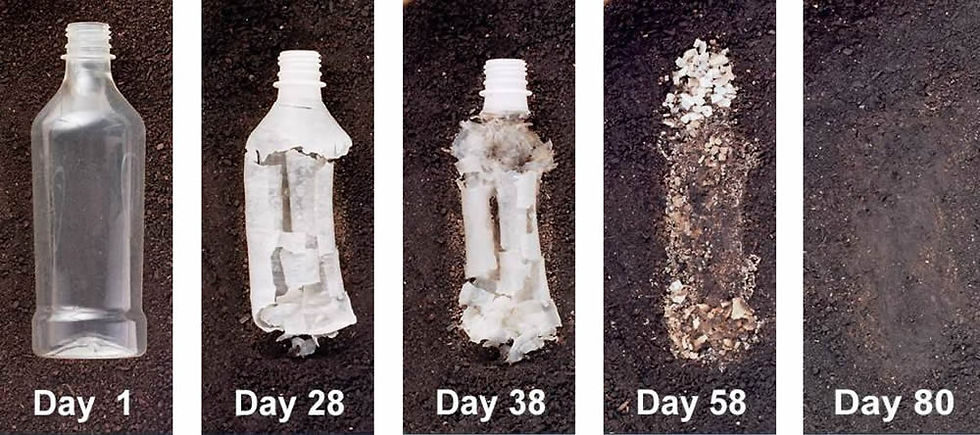Sustainable Clothing: Supporting Local Economies Through Hemp Fashion
- Fae Cueto
- Oct 17, 2024
- 4 min read
Updated: Jan 22, 2025

When you think of sustainable fashion, hemp clothing often stands out as a versatile and eco-friendly option. But did you know that it also has the power to uplift local economies? By choosing hemp-based clothing, consumers contribute to environmentally friendly practices while supporting small businesses, farmers, and artisans. Let’s explore how hemp fashion supports local communities and why it’s essential for a sustainable future.
What Is Hemp Fashion?
Hemp fashion refers to clothing and accessories made from hemp, a plant valued for its sustainable and durable properties. Used in textiles for thousands of years, hemp is now experiencing a renaissance due to its eco-friendly characteristics. Today, it’s more than just a fabric; it’s a movement driving change in the fashion industry and beyond. Explore the future of hemp in fashion to see how it’s reshaping sustainability.
The Environmental Benefits of Hemp Clothing
Hemp is hailed as one of the most sustainable materials, offering significant environmental benefits:
Low Water Usage: Unlike conventional cotton, hemp needs significantly less water than other crops, making it an ideal choice for environmentally conscious fashion.
Natural Pest Resistance: Hemp’s natural pest resistance means that farmers don’t need to use harmful pesticides. This not only protects the environment but also benefits the health of local communities and farmers working with the crop.
Soil Regeneration: Hemp helps regenerate the soil it grows in by replenishing vital nutrients. It’s often used in crop rotations, improving the health of the land and supporting sustainable agriculture practices.
How Hemp Fashion Supports Local Economies
The benefits of hemp fashion go beyond environmental impact. It plays a crucial role in strengthening local economies by creating opportunities across the supply chain:
Promoting Local Farming
Hemp cultivation creates additional income sources for farmers, particularly in rural areas. Its rising demand encourages sustainable farming practices and reduces reliance on monoculture crops. Discover the social impact of hemp farming on communities.
Boosting Small Businesses
Local designers and artisans craft unique hemp products that stand out in a competitive market. By supporting these businesses, consumers help stimulate economic growth and retain profits within the community.
Encouraging Ethical Labor Practices
Hemp fashion brands often prioritize fair trade, ensuring safe working conditions and fair wages. This commitment uplifts local communities and sets a benchmark for ethical practices.
Hemp Farming: A Boon for Rural Communities
Hemp farming offers numerous benefits for rural economies, including job creation and economic stability:
Job Creation: From cultivation to textile production, hemp generates employment opportunities at multiple levels. Learn how hemp farming techniques support sustainable practices.
Diversifying Income: Farmers benefit from hemp’s profitability, reducing reliance on traditional crops vulnerable to market fluctuations.
Local Supply Chains: Hemp production fosters local supply chains, reducing the carbon footprint of transportation and keeping resources within the region.
The Role of Small Businesses in Hemp Fashion
Small businesses are at the heart of the hemp fashion movement, bringing craftsmanship and ethical practices to the forefront. For example, handmade hemp products showcase quality and individuality, appealing to consumers looking for unique, sustainable pieces. Profits from local businesses are also reinvested into communities, fostering long-term development and resilience.
Challenges in the Hemp Fashion Industry
Despite its benefits, the hemp fashion industry faces challenges that require collective efforts to overcome, such as:
Regulatory Hurdles: Misconceptions surrounding hemp’s association with cannabis can lead to restrictive farming policies.
Competing with Fast Fashion: Lower prices and convenience of fast fashion pose challenges for hemp brands. However, educating consumers on the long-term benefits of sustainable fashion is key.
How Consumers Can Support Hemp Fashion
As a consumer, your choices can drive change in the fashion industry:
Buy Local: Support local hemp brands that prioritize sustainability and fair trade practices.
Spread Awareness: Share information about the benefits of hemp fashion to encourage more people to make ethical choices.
Overall…
Hemp fashion is more than a sustainable choice; it’s a powerful tool for supporting local economies and protecting the environment. By choosing hemp clothing, you’re not just investing in a durable and eco-friendly wardrobe—you’re contributing to the well-being of communities worldwide.
FAQs
What makes hemp fashion sustainable? Hemp uses less water, requires no pesticides, and helps regenerate soil, making it an eco-friendly choice for textiles.
How does hemp fashion contribute to local economies? Hemp fashion supports local farming, creates jobs, and promotes small businesses, keeping profits within communities.
Are hemp clothes expensive? While some hemp items may have a higher initial cost, their durability and sustainability make them a worthwhile investment.
How can I find local hemp fashion brands? Look for local markets, online platforms, or community-based stores that focus on sustainable fashion.
Is hemp fashion durable? Yes, hemp is a strong and durable fabric that becomes softer with each wash, ensuring long-lasting use.
LUXURY LEAF
Luxury Leaf isn’t just a brand; it’s a movement where fashion meets sustainability. By choosing our premium hemp clothing, you’re supporting ethical practices, sustainable farming, and local artisans.
Together, we can redefine what it means to dress with purpose.
Explore our exclusive hemp clothing collection today and make sustainability stylish. Shop Now!



Comments